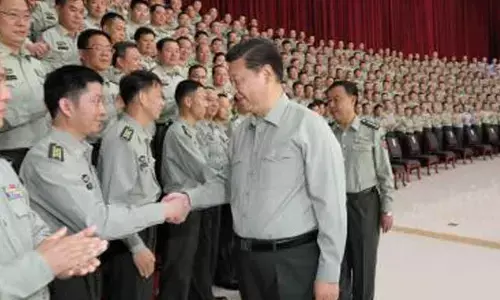Sourcing norms in retail eased
 Sourcing norms in retail eased
Sourcing norms in retail easedAfter announcing stimulus measures last week and tapping RBI reserves this week, the central government on Wednesday unveiled the second round of foreign direct investment (FDI) reforms
Hyderabad: After announcing stimulus measures last week and tapping RBI reserves this week, the central government on Wednesday unveiled the second round of foreign direct investment (FDI) reforms in key sectors like contract manufacturing, digital media, retail and coal mining, among others.
The Union Cabinet, which cleared the FDI proposals, eased the 30 per cent local sourcing norm in single-brand retail (SBRT) where domestic procurement for exported goods will now qualify for inclusion under the 30 per cent sourcing rules.
"With a view to provide greater flexibility and ease of operations to SBRT entities, it has been decided that all procurements made from India by the SBRT entity for that single brand shall be counted towards local sourcing, irrespective of whether the goods procured are sold in India or exported," Railway and Commerce Minister Goyal told reporters here following the cabinet meeting.
"Further, the current cap of considering exports for 5 years only is proposed to be removed, to give an impetus to exports", he added. The extant FDI policy provides that 30 per cent of the value of goods have to be procured from India if the SBRT entity has more than 51 per cent FDI. Besides, the local sourcing requirement can be met as an average during the first 5 years, and, thereafter, annually.
The existing policy also provides that incremental sourcing for global operations by the non-resident entities undertaking single-brand retail trading, either directly or through their group companies, will also be counted towards local sourcing requirement for the first 5 years.
However, the prevalent business models involve not only sourcing from India for global operations by the entity or its group companies, but also through an unrelated third party.
In order to cover such business practices, it has now been decided that 'sourcing of goods from India for global operations' can be done directly by the SBRT entity or its group companies, or indirectly by them through a third party under a "legally tenable agreement".
The extant policy provides that only that part of the global sourcing shall be counted towards the local sourcing requirement which is over and above the previous year's sourcing value.
As has been pointed out by industry, such a requirement of year-on-year incremental increase in exports induces aberrations in the system as companies with lower exports in a base year or in any of the subsequent years can meet the requirement, while a company with consistently high exports gets discriminated against. "It has been now decided that entire sourcing from India for global operations shall be considered towards local sourcing requirement," Goyal said.








